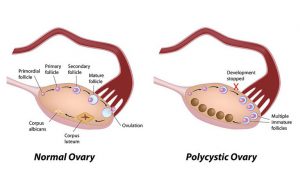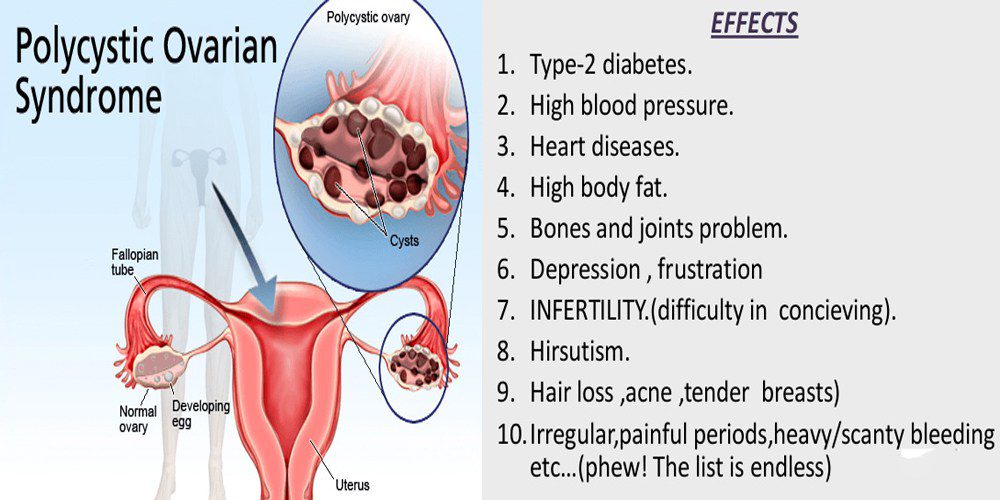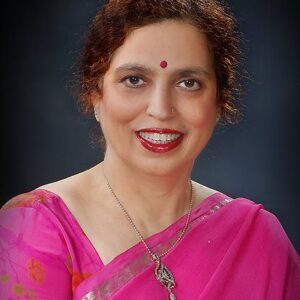Why polycystic ovarian syndrome (PCOS) occurs is not known though genetics (it can run in families), early age of menarche (age of 1st period), pollution, an unhealthy lifestyle – fast foods and lack of exercise are blamed. Dr. Amrinder, a leading, Delhi-based gynecologist provides the answer, exclusively for Different Truths.
- Are you an overweight teenager with facial hair, pimples and a poor sense of self-worth?
- Are you a married woman with delayed/scanty periods desperate for a baby but unable to conceive?
- Are you in your early forties and have already developed diabetes, high blood pressure and high cholesterol levels when you mother got them in her fifties?
All the three presentations are of the same condition called polycystic ovarian disease (PCOD) or polycystic ovarian syndrome (PCOS), a syndrome that has taken the modern world by storm. It is a hormonal disorder with
- Imbalance of the two female hormones estrogen and progesterone with estrogen taking the upper hand – resulting in menstrual irregularities, infertility, increased risk of endometrial (inner lining of the uterus) cancer and breast cancer
- Insulin resistance – leading to obesity
- Excess of testosterone (all females have a small amount of male hormones which is responsible for their libido) – causing acne and hair in parts of their body usually found in males, like the chin, breasts, and sideburns!
It is diagnosed by the physical appearance of the female, her increased BMI, enlarged ovaries with small cysts (from which it gets its name) as seen on ultrasound as the follicles that should rupture to release an  egg monthly, do not. Blood tests reveal changes in female hormone levels. POCS usually coexists with thyroid hormone deficiency and Vitamin D deficiency that have to be concomitantly addressed. At times there is an increase in levels of the hormone Prolactin, which may lead to breast secretions in a non-lactating woman.
egg monthly, do not. Blood tests reveal changes in female hormone levels. POCS usually coexists with thyroid hormone deficiency and Vitamin D deficiency that have to be concomitantly addressed. At times there is an increase in levels of the hormone Prolactin, which may lead to breast secretions in a non-lactating woman.
Why it occurs is not known though genetics (it can run in families), early age of menarche (age of 1st period), pollution, an unhealthy lifestyle – fast foods and lack of exercise are blamed.
It can be controlled (but not completely cured) by a multidisciplinary approach involving the gynecologist, dietician, dermatologist, endocrinologist, and infertility expert. Treatment varies according to the age, presenting symptom and the desire for childbearing.
The various modalities include:
- Lifestyle modification and weight reduction – suffices in most cases but needs a lot of motivation and persistence.
- Cyclical hormonal treatment (oral contraceptive pills/cyproterone acetate) for menstrual irregularities; newer drugs like myo-inositol are available for those wary of hormones
- Management of hypothyroidism, vitamin D deficiency and increased Prolactin levels with the help of specific drugs.
- Drugs (oral/injections) for ovulation induction and rupture of follicle for fertility enhancement; at times laparoscopic drilling of ovaries may be required. Drugs like metformin for insulin resistance; it also contributes to weight loss
- Drugs like Aldactone to decrease hair growth
- Laser treatment for hirsutism
- Treatment for acne
- The help of a counselor may be sought if the changes in appearance cause psychological problems.
Consult your doctor before starting any form of treatment.
©Dr Amrinder Kaur Bajaj
Photos from the Internet
#PolycysticOvarianSyndrome #Symptoms #EffectsOfPOCS #WomenHealth #Cancer #OverianSymptoms #DifferentTruths







 By
By
 By
By

 By
By